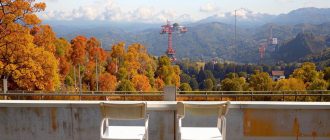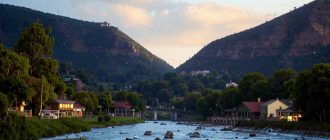Until recently, Kazakhstan was not the most popular destination for Russians – and for nothing! The country, which we admit we don’t know much about, can surprise even a sophisticated tourist.

President of Pro-Vision, author of the Vinogradov.story community
I suggest to start acquaintance with Kazakhstan with the most unexpected and interesting facts – I have collected a few below.
National idea – uniqueness
Being the center of Turkic civilization and combining elements of different cultures, Kazakhstan has not only not lost, but also defined its own unique character through them. Even during the long years as part of the USSR, the country defended the right to self-determination – cultural, linguistic and ethnic. And after the collapse of the Soviet Union, independence in all spheres of social life became almost a national idea for Kazakhstan. And if the names Abai Kunanbayev or Skriptonit don’t mean anything to you, you should definitely correct this misunderstanding before your trip.
Kazakhstan has two capitals
It will sound a bit subjective, but I can’t ignore this fact: Kazakhstan, like Russia, actually has two capitals. Political and administrative – Nur-Sultan (or Astana again), business and cultural – Alma-Ata. For those who are in Kazakhstan for the first time, I would recommend to start traveling around the country from the capitals.
Against the background of Astana and Alma-Ata, modern innovative megacities, the steppe regions of Kazakhstan, where the traditional way of life and subsistence economy are preserved, look amazingly contrasting. Urbanization in Kazakhstan is still not a widespread phenomenon: fortunately or unfortunately, only the citizens of the country can judge.
Kazakh cuisine is young, but with an interesting history
The beginning of the modern stage of Kazakhstan’s gastronomic history is usually dated back to the XIX-XX centuries, when the transition to a sedentary way of life and sedentary economy was completed. However, the roots of the national cuisine should be sought much deeper – in Turkic nomadic peoples.
The basis of the nomads’ diet was meat, flour and sour-milk products, that is why most of the Kazakh dishes play with their combinations among themselves, as well as with cereals or vegetables.
And if the fame of beshbarmak has gone far beyond the borders of Kazakhstan, you will not find dishes with this name inside the country, especially in rural areas. But you will meet yet or yet asy (another name of beshbarmak). And you should awaken your appetite for Kazakh cuisine by tasting this popular specialty.
Kazakhs are very fond of mountains
Nature is one of the most important treasures of Kazakhstan. If in Russia, everyone who can afford it tends to settle closer to the water, then, for example, in Alma-Ata they dream of the mountains. It sounds beautiful and exotic to rent a house in the foothills of the Tien-Shan, to flood a sauna on saxaul and to make a couple of figure pas on the high-altitude skating rink Medeo. But in Kazakhstan it is an element of everyday life. One of a thousand reasons why you want to stay here longer.

One word can be very insulting to a Kazakhstani person
By the way, it was the gap between the urban and rural population of the republic that once gave rise to one of the most negative internal stereotypes about Kazakhstanis. A stop-word that you should beware of like fire and forget forever when entering the country is mambet (that’s the pejorative word for Kazakhs from rural areas). It sounds as insulting as possible to the inhabitants, especially from foreigners.
If you plan to master Kazakh on the minimum level, start with “rakhmet” – “thank you”. This will guarantee you, as a visitor to the country, an extremely positive response.






